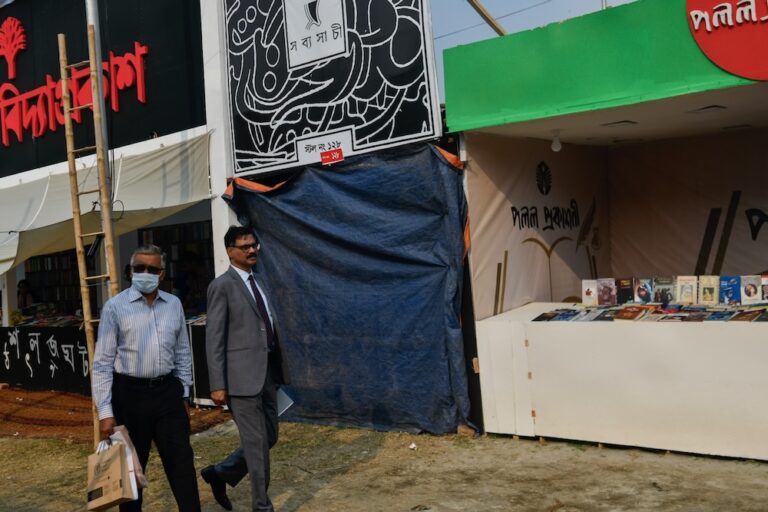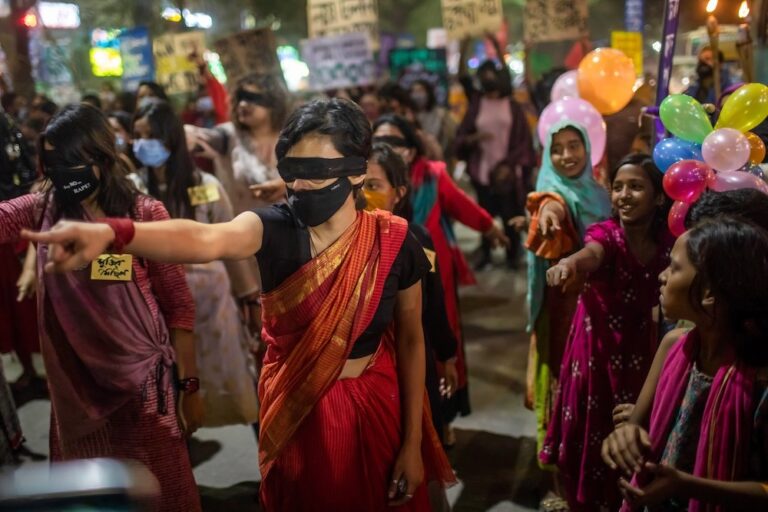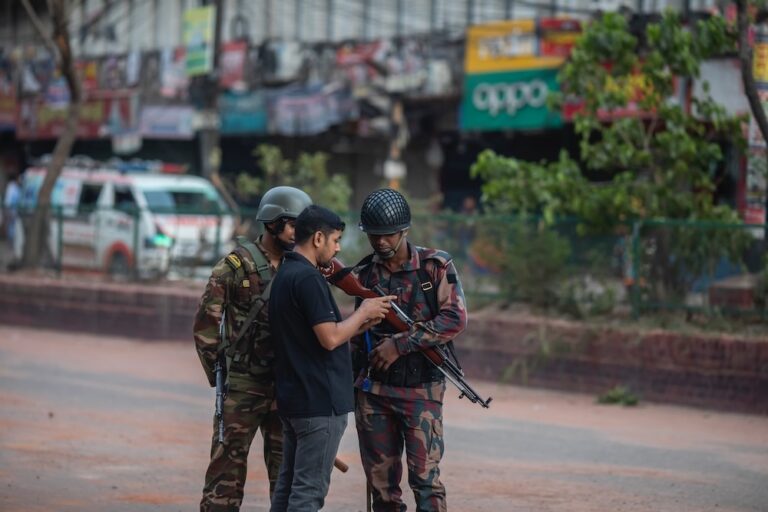(Media Watch/IFEX) – The following is a 13 July 2002 Media Watch press release: Government’s “culture of secrecy” requires a 180-degree shift, says World Bank MEDIA WATCH: The World Bank has called for a total shift in the government’s “culture of secrecy” with regards to making information available to the public to ensure financial accountability […]
(Media Watch/IFEX) – The following is a 13 July 2002 Media Watch press release:
Government’s “culture of secrecy” requires a 180-degree shift, says World Bank
MEDIA WATCH: The World Bank has called for a total shift in the government’s “culture of secrecy” with regards to making information available to the public to ensure financial accountability and good governance.
“The whole culture of government in Bangladesh, as in many countries, is one of secrecy. A 180-degree cultural shift is required”, said a recent World Bank study on Bangladesh’s financial accountability.
It added that all information should be made publicly available on demand “without question”, except for the carefully defined “exceptional cases”.
The study pointed out that the conception of transparency implies that records are open and accessible to citizens since the government performs its functions on behalf of the people.
Currently, government records are classified under “top secret”, “secret”, “confidential” and “restricted” categories and under the Official Secrecy Act, the “unauthorised disclosure of secrets” is a criminal offence. However, the World Bank suggested a complete transformation of this approach.
The study found that many civil servants and politicians fear that a change in the approach would cut the discretionary power they enjoy “behind the screen of secrecy”.
However, the discretionary power might be used for corrupt purposes, the report stated, referring to a recent sample survey which found that class I and class II officers often earn seven times more than their official salary from bribes.
The World Bank observed that the rotation of officers is widespread but not regular or systematic. Many fraud cases are brought to light only when the relevant officers are transferred. A more systematic transfer policy should be introduced.
The Bank study stated that the requirements for the dismissal of civil servants are very cumbersome and sometimes the process ends with the reinstatement of sacked officials.
The World Bank noted that freedom of information legislation is being introduced in many countries, including neighbouring India, defining the interface between government and civil society.
The weakness of a controlled environment makes it difficult to guarantee financial accountability in Bangladesh, unless public officials set rules and anti-corruption laws are seriously enforced.
Greater accountability is possible when the concerned agencies work together. A forum comprising non-governmental organisations and civil society representatives is needed to oversee and regularly review efforts to enhance accountability, transparency and the rule of law through the sharing of information, the Bank reported.


